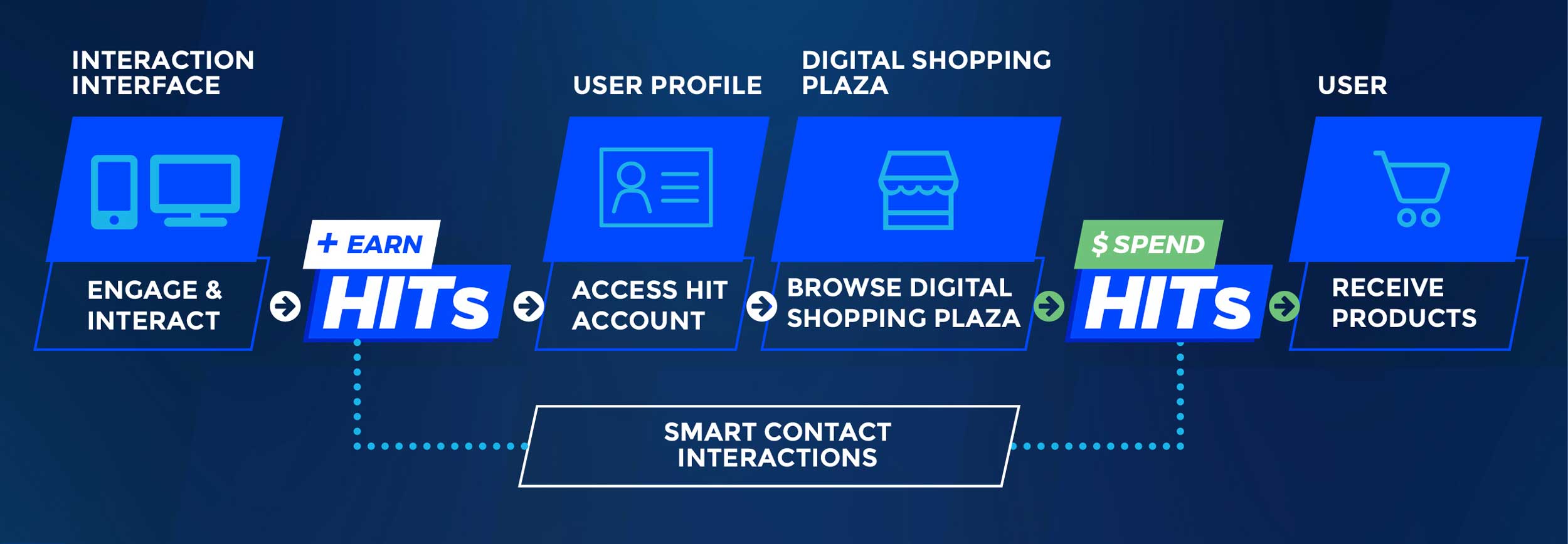Interactive TV Company Looks to Pay Viewers

The smarter way to stay on top of broadcasting and cable industry. Sign up below
You are now subscribed
Your newsletter sign-up was successful
Why This Matters: With viewers skipping commercials and getting harder to count, a reward system might help.
At a time when much of the television business is discussing which type of research currency to use to measure TV viewership for advertisers, interactive TV company iPowow is looking to fund a plan to create a cryptocurrency that would pay people for watching their favorite shows.
The currency would also compensate viewers for sharing data — quickly proving to be a precious commodity — about who they are, what they watch and what they buy.
And if all of this wasn’t buzzworthy enough, the iPowow folks are planning to use blockchain as the technological foundation for their new business.
What iPowow calls HIT tokens and the HIT protocol can benefit the TV business by offering three solutions to problems such as viewers watching on noncommercial platforms, inconsistent cross-platform audience measurement and a lack of data about TV advertising, iPowow CEO Gavin Douglas said.
Benefits for Viewers, Advertisers
With the HIT protocol, viewers get paid to watch shows, content creators and networks engage viewers and generate more revenue from digital viewing, and advertisers get transparency and audience insights.
The smarter way to stay on top of broadcasting and cable industry. Sign up below
It would work this way: A viewer tunes in a show and sees a graphic that says they’re getting five HIT tokens. The viewer either clicks his or her remote or goes to a second screen to activate an account and accept the tokens.
The viewer must have granted GDPR consent to share data. Later, the viewer can go to a digital shopping plaza to buy things with the HIT tokens. A number of large retailers have expressed interest in letting viewers use HIT tokens to buy real merchandise, Douglas said.
Jill Rosengard Hill, executive VP at market research firm Magid, said there was potential to the idea of a reward program for TV.
“There is a segment of consumers who are open to the exchange of their data for a fee,” she said. A recent Magid study found 33% of mobile users said they would give up access to their data in exchange for a discount.
“Marketers are looking at loyalty programs or the exchange of coins, gifts or money to drive loyalty and to drive tune-in,” she said.
There have been previous efforts to create reward systems for watching TV. GetGlue, which rewarded viewers with stickers, was acquired in 2012 by Viggle, a mobile app that offered points that could be exchanged for gift cards or access to premium content.
For the past seven years, iPowow has been in what it dubbed the “participation TV” business, creating interactive features that can be sponsored for 200 shows on networks such as ABC, Fox and USA, local stations and digital video platforms such as Facebook Live and Twitch. For Twitch, iPowow created an extension that lets viewers pay gamers they’re watching live and have input into how games will be played.
Douglas said iPowow has demonstrated that its system works whether on the first screen or second screen, and on all platforms — linear broadcast, VOD, over-the-top and online.
He hopes to raise the millions iPowow will need in August.

Blockchain Migration for HIT
iPowow plans to build its new HIT protocol on a blockchain foundation and migrate its current technology to blockchain as well by year end.
Blockchain enables the cryptocurrency HIT tokens, which cost less to distribute initially than real dollars and also provide transparency, immutability and consistency while decentralizing account information.
The HIT protocol will also be open, allowing other companies to develop apps, which will increase the utility of the system.
iPowow has been scanning the horizon but doesn’t see any competitor ready to implement an effective TV rewards program.
“The way we see it is, someone going to do this,” Douglas said. “Someone’s going to produce a media engagement token that’s global and covers all video interactions, and people get rewarded for watching and they can go spend it on things. We say it’s going to be us, so that’s what we’re going to do.”
Jon has been business editor of Broadcasting+Cable since 2010. He focuses on revenue-generating activities, including advertising and distribution, as well as executive intrigue and merger and acquisition activity. Just about any story is fair game, if a dollar sign can make its way into the article. Before B+C, Jon covered the industry for TVWeek, Cable World, Electronic Media, Advertising Age and The New York Post. A native New Yorker, Jon is hiding in plain sight in the suburbs of Chicago.

